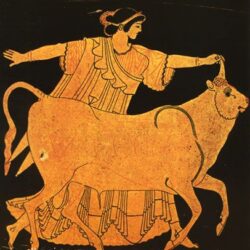Throughout the 20th century in Europe, we have seen many examples of people adhering to communism even after they are presented with its harsh reality. In chapter 11 of Dark Continent, Mazower touches on how the economic benefits of Stalinism stuck around much longer than the political ideology itself. Mazower asserts that the downfall of Stalinism began when “a centralized party and state apparatus ” using mass industrialization and control of “trade, agriculture and consumer goods” sowed unrest (Mazower, 362). To combat this, the Eastern European plan shifted slightly when “the balance of investment” was adjusted “in favour of light industry and improved living standards” (Mazower, 362). This idea made me think about how some people are willing to “turn a blind eye” or “cherry-pick” certain aspects of ideologies or systems when they offer some form of benefit. Do you think the communist model stuck around for so long because of the economic benefits that a minority received even though a majority of people still lived in poverty? Are people more willing to accept an oppressive government that promises economic prosperity at the expense of individual freedoms?

Europe’s Long 20th Century (HIS270 S21)
A Contentious Continent
I do agree with your thought that some people tend to only favor certain ideas of a political system that benefit them. However, I do not think that people would accept an oppressive government that promises economic prosperity. If you think about it, if the government is in fact oppressive, then it is most likely that only certain groups of people will prosper in economics.